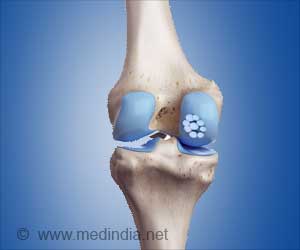Can yoga improve knee pain? Participating in a 12-week online yoga program may work wonders for patients with knee osteoarthritis.

Benefits of Exercise Osteoarthritis of the Knee
Knee osteoarthritis is a major contributor to pain and disability. Exercise can improve pain, function, muscle strength, and quality of life in people with knee osteoarthritis and is universally recommended.‘Can yoga improve knee osteoarthritis? An unsupervised online yoga program was more likely to improve knee function in just 12 weeks.’
Read More..




Yoga is an increasingly popular low-impact exercise combining both static and dynamic postures with mindfulness strategies, making it a possibly beneficial exercise for people living with knee osteoarthritis. However, limited low-quality research in knee osteoarthritis shows some benefits on pain, function, and knee stiffness from yoga programs delivered via supervised in-person group classes. Read More..
Is Yoga Good for Knee Osteoarthritis?
Researchers from the University of Melbourne assigned 212 adults with symptomatic knee osteoarthritis to complete either an unsupervised 12-week online yoga program with an education component or online education only. They then compared improvements in knee pain during walking and physical function at 12 and 24 weeks after starting the program.The researchers found that participants assigned to yoga successfully completed two-thirds of the program and reported improved knee function and less difficulty with function compared to those who engaged in education only. However, both groups reported similar levels of knee pain during walking.
The authors note that knee function benefits were not maintained among yoga program participants during the optional 12-week period following the initial mandatory program.
According to the authors, their findings suggest that an unsupervised online yoga program is feasible and improved physical function at 12 weeks while participants were engaged in the program. However, the improvement was modest and not sustained. They advise that additional research is needed to improve and sustain the effectiveness of online yoga programs.
Source-Eurekalert














